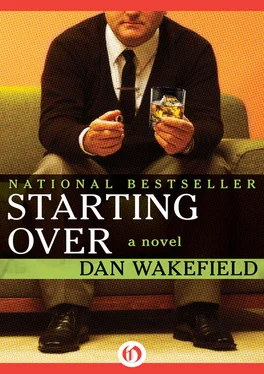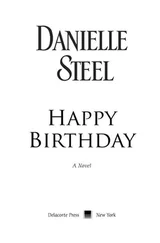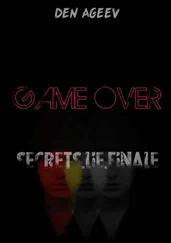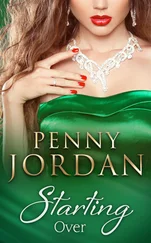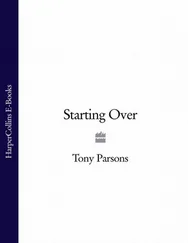“Not many things do,” Potter said.
She smiled, and he liked her.
They each had two more drinks, and Potter asked if she’d like to have dinner. She looked very tired.
“No thanks,” she said, “I don’t have time for dinner.”
“Well, can I take you someplace then?”
He meant to her car or a bus or a train, however she was going home.
“How about your place?” she asked.
Afterward, he took her in to Boston, to the underground parking garage beneath the Commons, where she’d left her car. They squeezed hands, and didn’t say anything.
That Saturday, he got a letter from her. It was on pale blue stationery, with her married name and address engraved on the back of the envelope. He opened it, apprehensively, wondering if she was going to cause trouble after all, wanted to get involved in some big, complicated affair, or was angry or sorry about what happened, or wanted to blame him or her, or what. Before he took the letter out of the envelope he poured himself a drink. He sat down on the couch, and pulled from the envelope the single piece of blue paper, bordered in white. It said:
Dear Phil,
It was beautiful beautiful beautiful beautiful beautiful beautiful beautiful …
The beautifuls covered both pages.
Potter showed the letter to Marilyn.
“It’s beautiful,” she said, smiling. “What are you going to do about it?”
“Nothing, probably.”
“Why not?”
“I don’t know. It just doesn’t seem like that kind of thing.”
“You aren’t going to see her again next Wednesday?”
“I doubt it.”
“ Why? ”
“I want to stop while I’m ahead, maybe. While everything is beautiful.”
“Is that all?”
“I don’t know. I really don’t know. I just don’t want to go on with it.”
Marilyn sighed, then shrugged. “Men,” she said.
“Don’t ‘men’ me,” Potter said.
“I’m sorry. Besides, I shouldn’t complain about men right now. I found myself a terrific one.”
“The distinguished shrink. How did it go?”
“He stayed over in Boston two extra nights. With me.”
“And?”
“And he wants me to go away with him.”
“How far away?”
“The Virgin Islands.”
“Great. You’ll probably have a good time.”
“I want more than that.”
“How much more than that?”
“Marriage.”
“Come on.”
“I’m serious.”
“But why? Why a married guy who has a family?”
“Well, let’s see. We had beautiful sex. And a wonderful time. He’s warm, and wise, and he’s wealthy. He’s been married sixteen years, and he’s bored with his wife. He hasn’t slept with her for several years.”
Potter wondered if any husband in America was sleeping with his wife.
Marilyn stood up and started walking around the couch. “Besides,” she said, “why the hell shouldn’t I have a townhouse on the Upper East Side, and a summer house on Martha’s Vineyard? And servants, and money, and clothes, and—and—”
She turned around to face Potter, with tears coursing down her cheeks. “And,” she said sobbing, “four children!”
Potter put his arms around her, held her tightly as she cried, and rubbed the back of her neck.
“I know,” he said, “I know.”
He got her to take a shower, and a tranquilizer. He gave her a backrub with Isopropyl, and took her to dinner at the Athens Olympia. She ate hearty, consuming a leg of lamb and rice and a Greek salad, and two baklavas for dessert. When they got back to her place they had brandy and sodas, and Marilyn seemed in good spirits again. She talked of the coming trip to the Virgin Islands, of how she had always wanted to go away like that in the winter to some sunny place. Then she fell silent.
“What is it?” Potter asked after a while. “What are you thinking about?”
“The Game,” she said.
“What game?”
“The one we all play. With each other. Me and Herb, even though we just met. You and that woman. The woman you aren’t going to see next Wednesday.”
“What about her?”
“I was thinking about that letter she wrote you, the one with all the ‘beautifuls.’”
“Yes?”
“She wrote the wrong letter.”
“What do you mean?”
“If she wanted to see you again, she should have written, ‘Dear Phil, it was terrible, terrible, terrible, terrible, terrible, terrible …’”
“Shit,” said Potter, but he couldn’t help smiling a little.
“Don’t give me that,” Marilyn said. “I’m right.”
Potter didn’t say anything. He didn’t move. Without meaning to, he realized he was holding his breath, trying not to think.
Marilyn leaned toward him and spoke, quietly, insistently: “I’m right,” she said. “Aren’t I right? Wouldn’t you have dragged your ass all over New England to see her again? If she’d written it was terrible, terrible, terrible?”
“Shut up, goddamn it!”
He slapped her.
She drew back, holding her hands on her face, her eyes wide and bright and wild with fright, not of what he would do, but of what she understood from what he did.
Potter shook his head violently, as if trying to come out of a spell. “I’m sorry,” he said.
Neither of them spoke for a long time, and finally Potter placed his hand on top of hers and, without looking into her eyes, spoke to her very quietly.
“You’re right, of course. It’s always The Game. And you have to play it with your wonderful Doctor if you really want to get him.”
“I know, I know, but I hate it. I just want to tell him I love him, and be able to enjoy it.”
“That’ll be the end of it.”
“I know, damnit, but it’s so hard, to be coy and scheming and say things you don’t mean and keep thinking all the time about keeping him hooked, unsure—and thinking up new strategies and all of it. It’s all so hard.”
“Listen,” Potter said. “I’ll help you. I’ll be—like an advisor.”
Marilyn thought for a moment. “OK,” she said. “I’ll try anything.”
“OK. It’s a deal.”
“A deal.”
They shook on it.
The new issue of Time magazine had a picture of actress Ali MacGraw on the cover, and a story on “The Return to Romance,” which explained how the fantastic success of Love Story as a book and now as a movie indicated a vast movement among the populace away from cynicism and toward sentiment. Potter read it with special care, not only because of his natural interest in the subject, but because he had to teach it.
Before the vacation break he assigned his Communications students to buy the issue of Time that appeared the week classes resumed, and read whatever happened to be the cover story. The exercise was part of the course’s attempt to make students conscious of the style and techniques of persuasion used by the different news and information media.
“All I know is, it made me cry,” Miss Korsky said.
“You’d cry at anything,” Mr. Stevenson said.
“Wait a minute,” Potter said. “Wait a minute. Miss Korsky, you mean to say the article in Time made you cry?”
“No, no. The movie. Love Story .”
“I don’t see what’s so romantic about dying of cancer,” Mr. Stevenson said.
“Wait,” Potter said, “we’re not discussing the movie of Love Story . I mean we’re not supposed to be. We’re supposed to analyze the article in Time .”
“I think it’s right,” someone said from the back of the room.
Right. Wrong. Good. Bad. Pass. Fail. Potter had hoped for a more detailed analysis. How could he wrench from the class some subtlety of observation, make them see some shades of distinction?
Читать дальше
